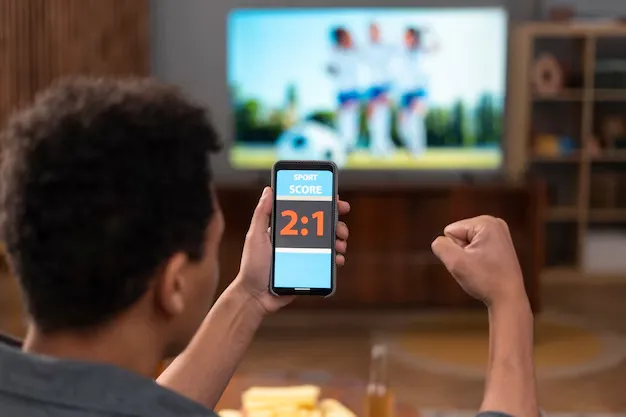
Internet Protocol Television (IPTV) has gained significant popularity as a way to access live TV channels, on-demand content, and even pay-per-view events via the internet. However, as with any internet-based service, users often debate whether using a VPN (Virtual Private Network) can enhance or hinder their IPTV experience.
In this article, we will dive into the pros and cons of using a VPN with IPTV, examine how it affects your viewing experience, and discuss whether IPTV works better without a VPN.
1. What is IPTV?
Before diving into the role of VPNs with IPTV, it’s important to understand what IPTV is and how it works. IPTV refers to the delivery of television content over the internet using IP protocols, as opposed to traditional methods like satellite or cable. It can be categorized into different types:
- Live TV: Real-time broadcast of channels, such as news, sports, and entertainment.
- Video on Demand (VOD): A library of movies, TV shows, and other content that you can watch whenever you want.
- Catch-up TV: Shows and events that have already aired but are available for viewing at a later time.
IPTV is typically delivered via subscription services or third-party providers, and it can be accessed on various devices, such as smart TVs, computers, smartphones, and dedicated set-top boxes.
2. What is a VPN?
A VPN (Virtual Private Network) is a tool that creates a secure, encrypted connection between your device and the internet. It does this by routing your internet traffic through a VPN server, which masks your real IP address and assigns you a new one. This not only enhances privacy and security but can also help bypass geographical restrictions or censorship.
A VPN has several key functions:
- Anonymity: It hides your real IP address and encrypts your data, making your online activities harder to trace.
- Access to geo-restricted content: By connecting to a server in another country, you can access content that is unavailable in your region.
- Improved security: It protects your data from hackers, especially when using public Wi-Fi networks.
Now that we understand both IPTV and VPNs, let’s explore how the two interact and whether IPTV works better with or without a VPN.
3. How Does a VPN Affect IPTV?
Using a VPN with IPTV can have both positive and negative effects, depending on several factors like your internet speed, the VPN provider, and the IPTV service you’re using. Here are the key ways a VPN affects IPTV:
1. Privacy and Security Benefits
- Privacy Protection: One of the primary advantages of using a VPN with IPTV is the increased privacy it offers. By masking your real IP address, a VPN prevents your Internet Service Provider (ISP) from tracking your online activities. This is especially useful if you’re watching content through third-party IPTV services that might not be entirely legal in your country.
- Protection from ISP Throttling: Some ISPs engage in throttling, which involves slowing down your internet speed based on the type of content you’re consuming. For example, ISPs may throttle streaming services or IPTV traffic to reduce bandwidth usage. A VPN can help bypass throttling by hiding the type of traffic you’re sending over the network.
- Public Wi-Fi Safety: If you’re accessing IPTV over public Wi-Fi (e.g., in cafes, airports, or hotels), a VPN can protect your data from hackers and malicious third parties. By encrypting your internet traffic, it prevents others on the same network from intercepting your data.
2. Bypassing Geo-restrictions
- Accessing Content from Different Regions: Some IPTV providers limit access to certain content based on your geographical location. For instance, sports events or channels may be restricted to specific countries due to licensing agreements. By connecting to a VPN server in a different country, you can bypass these geo-blocks and access content from other regions. This is particularly useful if you’re traveling abroad or living in a country with limited access to IPTV services.
3. Potential Drawbacks of Using a VPN
While a VPN provides several benefits, it can also introduce some issues that may affect the quality and performance of IPTV:
- Reduced Speed: When you use a VPN, your internet traffic is routed through a VPN server, which can introduce latency and result in slower speeds. Since IPTV relies on a stable and fast internet connection to stream content without buffering or interruptions, a slower connection could negatively impact your viewing experience.
- Server Congestion: Many free or low-cost VPN services have servers with heavy traffic, which can lead to congestion and slow speeds. This could cause buffering, pixelation, or quality degradation when watching IPTV content.
- Compatibility Issues: Not all IPTV providers support VPNs, and using a VPN could cause issues with connecting to your IPTV service. Some IPTV services may even block VPN traffic to prevent users from bypassing geographic restrictions or using illegal streaming methods.
- VPN Detection by IPTV Providers: Some IPTV providers, especially legitimate services (such as major TV networks or subscription-based IPTV services), have mechanisms in place to detect and block users who are accessing their service through a VPN. This can result in an inability to stream content or even account suspensions.
4. Does IPTV Work Better Without a VPN?
For many users, IPTV works perfectly fine without a VPN. Here’s why IPTV may perform better without one in some cases:
1. Faster Speeds and Better Streaming Quality
Without a VPN, your internet traffic flows directly to the IPTV provider’s servers, allowing for a faster, more direct connection. This is particularly important when streaming high-definition (HD) or 4K content, which requires a stable and fast internet connection. By bypassing the encryption and rerouting process of a VPN, you might experience better streaming quality and less buffering.
2. Fewer Compatibility Issues
When you access IPTV without a VPN, you eliminate the risk of connection issues that might arise due to VPN restrictions or blocks. Many official IPTV providers don’t allow VPN traffic, so accessing IPTV without a VPN can ensure a smoother and more reliable experience.
3. No Extra Latency
Using a VPN adds extra latency to your connection, which could affect the smoothness of live TV streams. In scenarios where every second counts, such as live sports events or news broadcasts, reducing latency becomes crucial for a seamless viewing experience. Without a VPN, IPTV tends to function with minimal delay, leading to better synchronization and real-time viewing.
5. When is a VPN Necessary for IPTV?
While IPTV may work better without a VPN in certain situations, there are scenarios where using a VPN is essential:
- Accessing geo-restricted content: If you want to watch content that is not available in your region (e.g., exclusive channels, live sports events), a VPN can bypass these restrictions by masking your real IP address.
- Protecting privacy: If you’re using third-party IPTV services, especially illegal or unverified sources, a VPN can protect your privacy by preventing your ISP from tracking your IPTV activities.
- Bypassing ISP throttling: If you notice that your internet speeds are reduced when using IPTV services, a VPN can help hide the type of traffic you’re sending, avoiding throttling by your ISP.
6. Conclusion
The question of whether IPTV works better without a VPN depends on your specific needs and circumstances. If you’re primarily concerned with speed, streaming quality, and avoiding compatibility issues, using IPTV without a VPN is generally the better option. However, if privacy, security, and accessing geo-blocked content are more important to you, then using a VPN with IPTV could be the right choice.
For the best IPTV experience services, consider the following:
- Use a high-quality VPN with fast, reliable servers if privacy or bypassing restrictions is a priority.
- For optimal streaming quality, you may want to try IPTV without a VPN if geo-restrictions are not a concern, as it will allow for the fastest and smoothest viewing experience.
Ultimately, whether to use a VPN with IPTV depends on your priorities: streaming quality, security, or access to restricted content. By understanding the potential impacts of using a VPN, you can make an informed decision about how to best enjoy IPTV.
